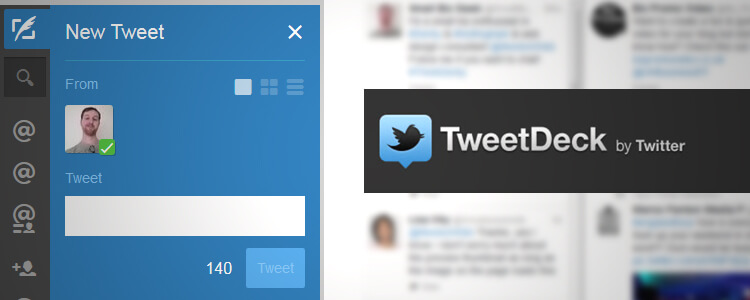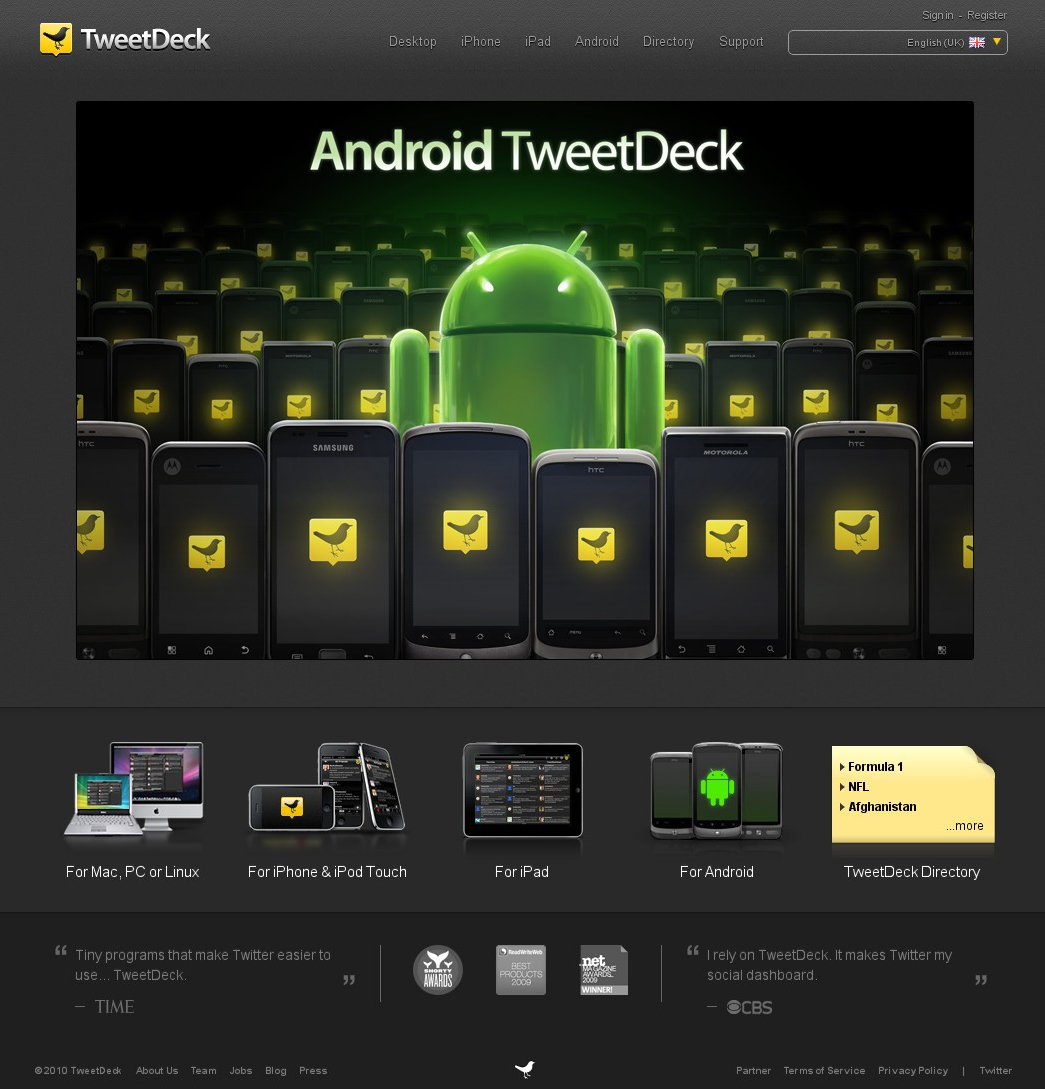
That’s why the guys over at Twitter HQ came up with a better way for you to manage and use your Twitter account, or multiple accounts if you have more than one. You also have less of a headache staying on top of things. If you’re great, then your brand grows and you become an authority to the people that follow you.

If you suck at it then you’ll never have the sort of pull you want with your followers or reach the heights of your account’s potential. But it's unclear how many users will take up Twitter on the offer, when all that's left of TweetDeck is the web version.Managing your Twitter is a make-or-break experience. There are some hints that Twitter may begin to charge for TweetDeck through its Twitter Blue subscription. But there’s also been some criticism that these efforts, which are focused on finding new ways to drive platform revenue, have distracted the company from more critical work that needs to be done, like tackling misinformation.Īrguably, they've distracted Twitter from work that could have driven revenue, too - if TweetDeck's users' pleas are to be believed. In recent months, Twitter has been developing a flurry of new products, including a set of creator tools ( Super Follows), a subscription product for power users ( Twitter Blue), newsletters ( Revue), NFT avatars, in-app tipping, live audio ( Twitter Spaces) and more.
#TWEETDECK TWITTER VERIFICATION#
While Twitter had a history of productizing some of its users' ideas, others were routinely ignored - like the long-requested Edit button or a better verification system. That speaks to some of the disorder around Twitter's product development decisions that have plagued the company over the years. But when a core group of Twitter's most-active users demanded and even pleaded to pay for TweetDeck, those cries were ignored.

Twitter, as a company, has been inspired to develop many of its core features over the years - like hashtags, threads, retweets and more - based on how people were already using its product. It's a shame that a product like TweetDeck has been neglected for so long. (Something tells us it's about to get an influx of new users.) Few alternatives aim to truly compete with TweetDeck, beyond something like Tweeten, whose design and functionality are based on TweetDeck. While there are plenty of lists of TweetDeck alternatives available if you search, often the lists simply point users to broader social media management platforms designed for professionals, like Hootsuite, Buffer or Sprout Social, or to third-party Twitter apps, like Tweetbot or Echofon. Several aren't fans of the web app, either, complaining it's too slow, has a poor user interface, lacks threads, has wasted space and more.

Based on the comments now circulating on Twitter about the shutdown, both in the replies to Twitter's announcement and elsewhere, many are unhappy with this decision.
#TWEETDECK TWITTER FULL#
TweetDeck's Preview version is currently testing with a limited number of people in the U.S., Canada, Australia, New Zealand and Japan, per its website, and aims to offer more features, including a full Tweet Composer, Advanced search features, new column types and "Decks" - a new way to group columns into workspaces.Īlthough Twitter isn't fully ending support for TweetDeck, given that it will live on as a web app, many users prefer a native experience.

Image Credits: TweetDeck's shutdown message to users


 0 kommentar(er)
0 kommentar(er)
